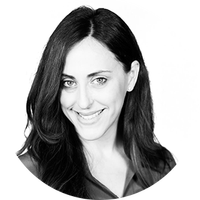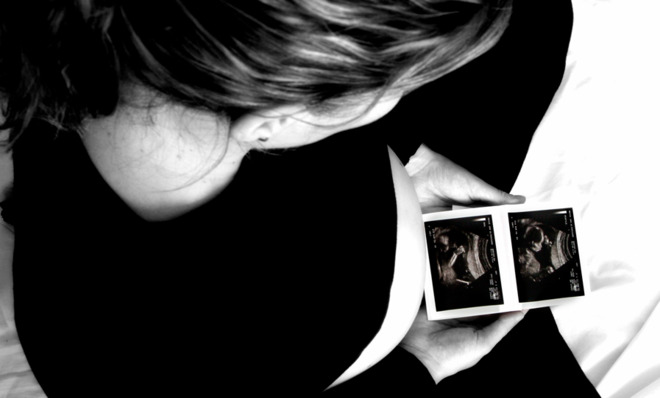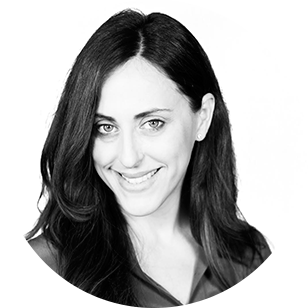Half-baked genetic research is fueling the latest round of mom bashing
Epigenetics is adding more grist to the pregnancy advice mill


A free daily email with the biggest news stories of the day – and the best features from TheWeek.com
You are now subscribed
Your newsletter sign-up was successful
Being pregnant isn't easy. There are exhaustion, nausea, back pain, insomnia, and whatever else a woman might experience while incubating human life. And then there are all the mixed messages.
Friends, doctors, random strangers, the media — you name it: Everyone has an opinion on what's best for you and your baby. And everyone has a study to back his or her opinion up.
Drinking any alcohol could harm your baby, says one study. No, moderate drinking is fine, says another. The same goes for exercise, caffeine — even cold cuts are regularly debated. Mothers are left with two choices: obsessively follow the latest studies and try to do everything right and probably lose your mind, or ignore much of what you hear and rely on the twin principles of common sense and moderation. (I chose the latter path. He's fine.)
The Week
Escape your echo chamber. Get the facts behind the news, plus analysis from multiple perspectives.

Sign up for The Week's Free Newsletters
From our morning news briefing to a weekly Good News Newsletter, get the best of The Week delivered directly to your inbox.
From our morning news briefing to a weekly Good News Newsletter, get the best of The Week delivered directly to your inbox.
Either way, all eyes are on the mother-to-be, who will experience a fair amount of blame should anything go wrong.
Now there is a new field of study adding more grist to the pregnancy advice mill, and according to Sarah Richardson, a Harvard professor of the history of science and of gender studies, the research this new wave of recommendations is based on is inconclusive.
In an article in Nature, Richardson warns us that the way epigenetics, which is the study of how chemical reactions affect gene activity, is being discussed in the media is putting unnecessary blame on mothers. The finding that everyone has latched on to, she says, is that something a mother does or doesn't do during pregnancy can actually affect the way her children's and even grandchildren's DNA behaves. Meanwhile, matters like family life, social environment, and the way fathers affect their offspring through epigenetics are being overlooked. Richardson writes:
[The research on epigenetics] would ideally guide policies that support parents and children, but exaggerations and over-simplifications are making scapegoats of mothers, and could even increase surveillance and regulation of pregnant women. As academics working in DOHaD [developmental origins of health and disease] and cultural studies of science, we are concerned. We urge researchers, press officers, and journalists to consider the ramifications of irresponsible discussion. [Nature]
She's right.
A free daily email with the biggest news stories of the day – and the best features from TheWeek.com
Take for example this recent spate of headlines:
"Can mom's pregnancy diet rewire baby's brain for obseity?" and "How a pregnant woman's choices could shape a child's health" from NPR.
"Mother's diet during pregnancy alters baby's DNA," from the BBC.
"Pregnant 9/11 survivors transmitted trauma to their children" from The Guardian.
"A mother's stress while she is pregnant can have a long-lasting effect on her children's genes," from The Economist.
And "Exposure to pesticides when pregnant linked to 3 generations of disease," from Newsweek, just last week.
All of these stories make big claims about the many ways a mother can screw up her children or even her grandchildren. And yet the scientific studies they are reporting on don't contain conclusive results. Scientists are too quick to jump from animal studies to humans "without qualification," Richardson writes. The "short life spans and large litter sizes" of the animals used for such studies "often make animal models poor proxies for human reproduction."
So, why this instinct to jump to mom-blaming conclusions? As for the first part of the question, bold statements make for punchier headlines than those filled with "maybes" and "mights." And as for why the focus on mothers, well, old habits die hard.
It is so much easier to put the onus on mothers than it is to give them support and own up to the fact that, hey, Dad might have something to do with this, too. Studies about epigenetic modification to sperm yield similar results to those about women, yet they're not getting nearly as much attention.
We issue decrees about how pregnant women should eat, how they should avoid stress, and how they should parent, but do little to help them out. Richardson points out that preventing things like "racial discrimination, lack of access to nutritious foods, and exposure to toxic chemicals in the environment" would go farther than lecturing individual women.
Indeed, one way to cut the stress of all pregnant women would be to stop running all these half-baked studies as news.
Elissa Strauss writes about the intersection of gender and culture for TheWeek.com. She also writes regularly for Elle.com and the Jewish Daily Forward, where she is a weekly columnist.
-
 The ‘ravenous’ demand for Cornish minerals
The ‘ravenous’ demand for Cornish mineralsUnder the Radar Growing need for critical minerals to power tech has intensified ‘appetite’ for lithium, which could be a ‘huge boon’ for local economy
-
 Why are election experts taking Trump’s midterm threats seriously?
Why are election experts taking Trump’s midterm threats seriously?IN THE SPOTLIGHT As the president muses about polling place deployments and a centralized electoral system aimed at one-party control, lawmakers are taking this administration at its word
-
 ‘Restaurateurs have become millionaires’
‘Restaurateurs have become millionaires’Instant Opinion Opinion, comment and editorials of the day
